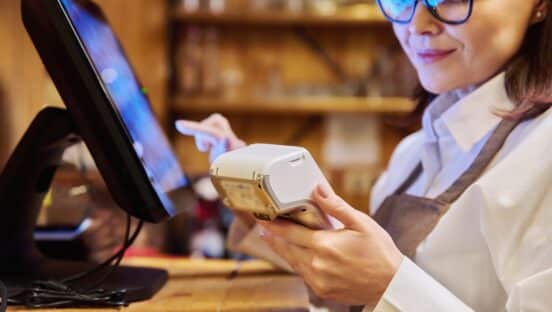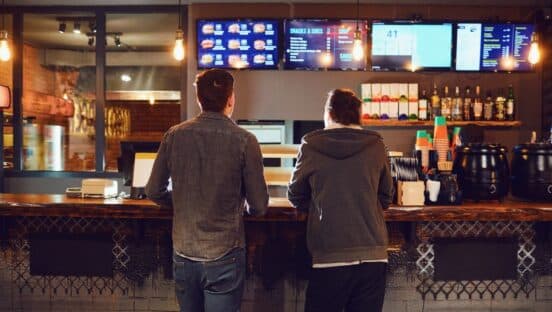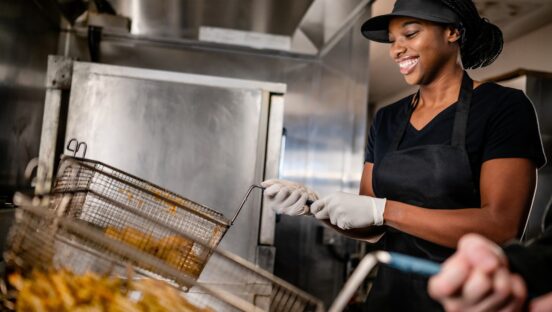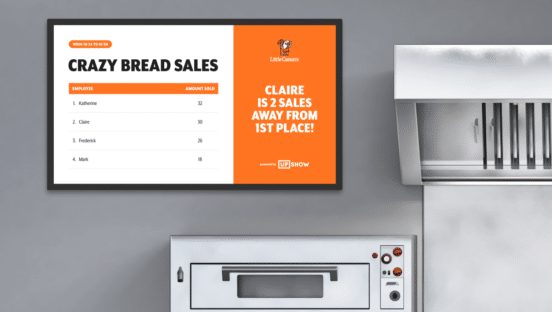This year, COVID-19 changed nearly every restaurant’s plans; yet despite pandemic-related setbacks, some brands’ performance still exceeded expectations. Take Noodles & Company for example. While many chains have struggled to draw in guests and generate sales amid dining room closures, this Colorado-based fast casual chain has thrived, reporting a 151 percent increase in digital sales for the third quarter of 2020. These results are even more impressive when one considers that Noodle & Company didn’t close any restaurants due to COVID.
So how did Noodles & Company accomplish such impressive results during such a challenging period for the industry? Brad West, executive vice president of operations at Noodles & Company attributes the brand’s success to solid operations.
“We’ve spent the year building trust with our guests by wearing masks and gloves and ensuring they are walking into a clean environment,” West says. “We’ve also made sure we have solid operations to deliver on a great guest experience. But most of all, we remained nimble and flexible.”
This flexibility was key to surviving a turbulent year. Like many brands, Noodles & Company had to change its operations while dining rooms across the country closed due to the pandemic. Fortunately for Noodles & Company, the leadership team had already planned on launching curbside pickup service for the brand in 2020. However, COVID-19 pushed the brand’s leadership team to speed up the timeline for the program, and Noodles & Company launched curbside service in over 80 percent of its restaurants in just three days.
“Typically, we’d test initiatives for six months to a year before rolling them out to all stores, but the situation with COVID dictated that we take a risk, so we decided to launch curbside quickly,” says Bill Knopf, vice president of operational services at Noodles & Company.
The risk paid off. Even though the company’s general managers had only been informed of the change one day before the initiative’s launch, West says the brand’s managers met the move with optimism, realizing it would help keep stores afloat while restaurants throughout the country closed their doors. Additionally, the brand’s thorough, high-tech training process enabled the team to quickly and seamlessly rollout the new service.
“Five years ago, we started using PlayerLync as our knowledge base and a key part of our training ecosystem,” Knopf says. “Instead of procedure manuals and recipe books, we’ve uploaded our materials to PlayerLync to create a single source of truth that can be accessed from the two iPads we have in every restaurant. This gives our teams the confidence and ability to operate efficiently.”
Because PlayerLync is a centralized, mobile repository for training videos and content, materials can be quickly updated and sent out to each store with just a few clicks. This enabled the Noodles & Company team to rollout curbside pickup procedures and training to employees in a matter of minutes to ensure a consistent off-premises dining experience across the brand.
Knopf says that while Noodles & Company still uses shoulder-to-shoulder training and a learning management system during regular operations, these techniques have been challenging during COVID due to masking and social distancing making in-person training difficult. Thankfully, the brand has been able to roll out materials that ensure each employee gets the same level of thorough training due to PlayerLync’s video and document capabilities.
PlayerLync helped Noodles & Company update team members as the situation around COVID developed. PlayerLync’s mobile workforce enablement platform also helped ensure stores follow best practices at a time when compliance with COVID guidelines was make-or-break for restaurants to help build diner confidence in the brand.
Additionally, while area managers are visiting stores less frequently, the brand’s leaders are now using PlayerLync’s data tools to see how many employees have completed training.
“We have nearly 10,000 team members across the company, and we can see when they take their training and even which team members were the first to complete a course,” West says. “Our multi-unit operators and general managers can also complete operations evaluations inside PlayerLync.”
Though 2020 brought vast challenges to the quick-service industry, Knopf and West agree that the brand’s strong training practices was a key to how the restaurant chain performed this year and played a large role in achieving that 151 percent digital sales growth.
“When we look back at the past nine months and all our brand has accomplished, I think we’ll look back and say, ‘Can you believe what we did?’” West says. “From Bill’s team building the training content for curbside pickup to supporting our operations and allowing our marketing team to be able to show where curbside pickup and online ordering signage should go, our strong training culture has been a key part of the calmness and confidence with which our team has operated and a major factor in our success.”
To learn more about how effective training can help your brand succeed, visit the PlayerLync website.
By Peggy Carouthers













